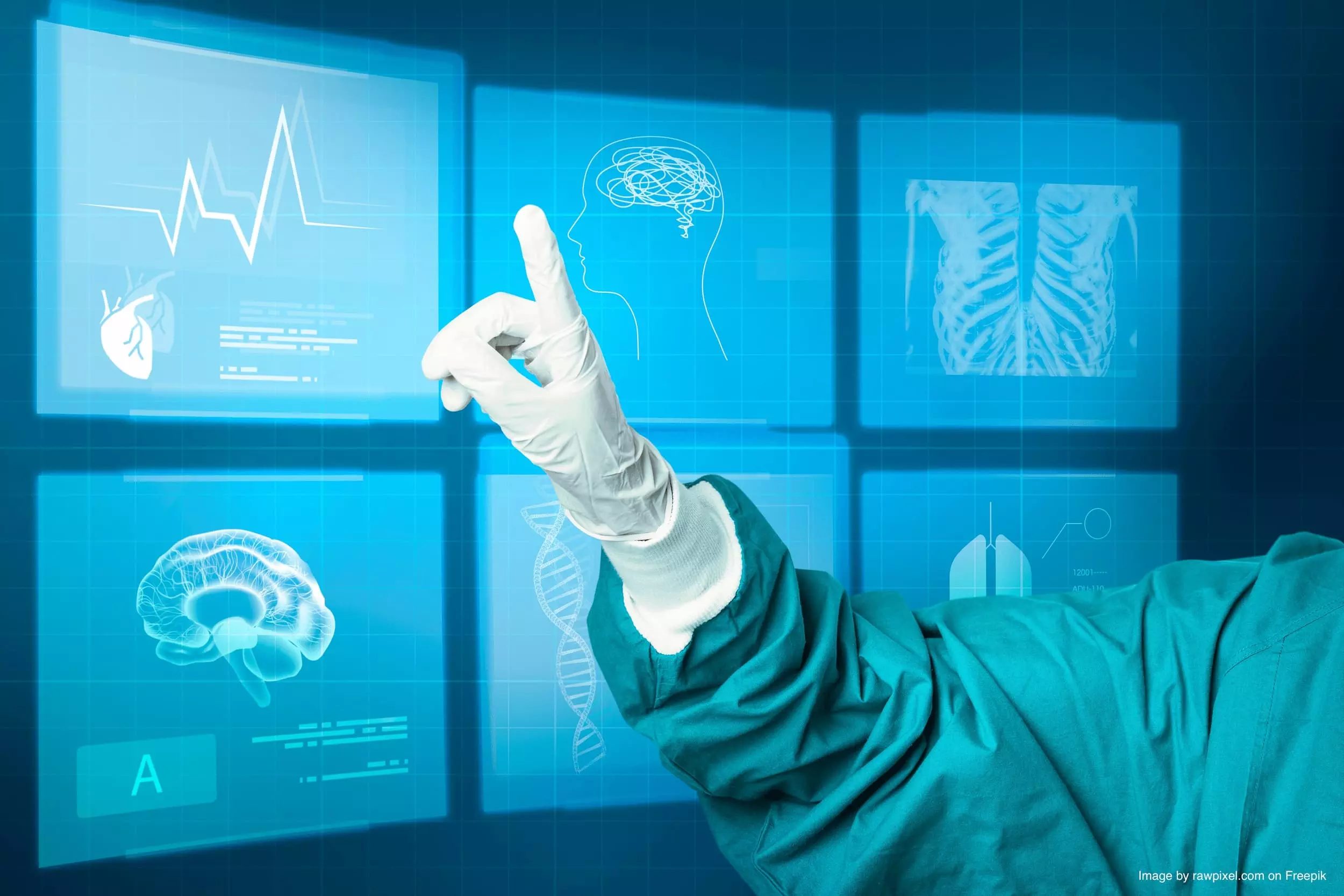
Blog
Healthcare Software Development: Innovating Care in the Digital Age with CodriveIT

The healthcare industry is undergoing a profound digital transformation, driven by the need for enhanced patient care, streamlined operations, cost reduction, and robust data management. In this complex and highly regulated sector, generic software simply won't do. Healthcare software development demands specialized expertise, meticulous attention to compliance, and a deep understanding of clinical workflows. At CodriveIT, we are dedicated to building innovative, secure, and user-friendly software solutions that empower healthcare providers, optimize patient outcomes, and advance medical practices.
The Imperative for Custom Healthcare Software:
The unique demands of healthcare, from sensitive patient data to intricate clinical pathways, necessitate custom-tailored software solutions. Here's why investing in bespoke healthcare software development with CodriveIT is a critical strategic decision:
- Enhanced Patient Care & Outcomes: Software can centralize patient data, improve diagnostic accuracy, facilitate faster communication between caregivers, and enable personalized treatment plans, directly contributing to better health outcomes.
- Streamlined Workflows & Operational Efficiency: Automating repetitive administrative tasks (e.g., scheduling, billing, inventory management) frees up medical staff to focus on patient care, reducing manual errors and improving overall productivity.
- Robust Data Security & Privacy (HIPAA, GDPR, etc.): Healthcare deals with highly sensitive Protected Health Information (PHI). Custom software allows for the implementation of stringent security measures, encryption, access controls, and audit trails necessary to meet strict regulatory compliance like HIPAA, GDPR, and local laws.
- Seamless Interoperability & Integration: Modern healthcare relies on a vast ecosystem of systems. Custom solutions can be designed to integrate seamlessly with existing Electronic Health Records (EHR) and Electronic Medical Records (EMR) systems, laboratory systems, imaging systems (PACS), and other third-party tools, eliminating data silos.
- Scalability & Future-Proofing: Healthcare is constantly evolving. Custom software can be built with scalability in mind, accommodating growing patient volumes, new medical technologies, and emerging healthcare trends without requiring costly overhauls.
- Cost Reduction: By automating tasks, reducing paperwork, minimizing medical errors, and optimizing resource allocation, healthcare software can significantly lower operational costs in the long run.
- Improved Patient Engagement & Experience: Patient portals, telemedicine apps, and remote monitoring tools empower patients to actively participate in their health management, leading to higher satisfaction and better adherence to treatment plans.
- Data-Driven Decision Making: Comprehensive analytics and reporting features within custom software provide valuable insights into patient trends, operational performance, and clinical effectiveness, aiding in informed decision-making.
Key Considerations in Healthcare Software Development:
Developing healthcare software is a complex undertaking that requires expertise in specific areas:
Regulatory Compliance:
- HIPAA (Health Insurance Portability and Accountability Act): Crucial for protecting patient data privacy and security in the US.
- GDPR (General Data Protection Regulation): Essential for handling patient data within the EU.
- HL7 (Health Level Seven): A set of international standards for the transfer of clinical and administrative data between software applications.
- FHIR (Fast Healthcare Interoperability Resources): A newer standard for exchanging healthcare information electronically.
- FDA Regulations: Applicable for medical devices and certain types of clinical software.
- CodriveIT ensures that every solution we develop is built with "Privacy by Design" and "Security by Design" principles, adhering to all relevant national and international regulations from the ground up.
Data Security & Privacy:
- Implementing robust encryption for data at rest and in transit.
- Strong access controls (Role-Based Access Control - RBAC, Multi-Factor Authentication - MFA).
- Comprehensive audit trails and logging.
- Regular risk assessments and penetration testing.
- Incident response plans.
Interoperability:
- Seamless integration with existing and future systems (EHR/EMR, labs, pharmacies).
- Leveraging standards like HL7 and FHIR to facilitate data exchange.
- Addressing challenges of disparate legacy systems and data silos.
User Experience (UX) & User Interface (UI):
- Designing intuitive, easy-to-use interfaces for clinicians, administrative staff, and patients to reduce training time and improve adoption.
- Minimizing clicks and optimizing workflows to improve efficiency in fast-paced clinical environments.
Scalability & Performance:
- Architecting solutions that can handle large volumes of sensitive data and thousands of concurrent users.
- Ensuring fast response times for critical clinical operations.
CodriveIT's Specialized Healthcare Software Development Services:
At CodriveIT, our dedicated team of healthcare IT experts, developers, and QA specialists understands the nuances of the medical domain. We offer comprehensive services across the healthcare spectrum:
- Electronic Health Record (EHR) & Electronic Medical Record (EMR) Systems:
- Custom development, integration, and enhancement of EHR/EMR solutions for clinics, hospitals, and specialized practices.
- Focus on efficient data entry, patient history, medication management, lab results, and decision support.
- Telemedicine & Telehealth Platforms:
- Building secure, real-time video consultation platforms with features like online appointment booking, e-prescribing, remote patient monitoring integration, and secure messaging.
- Hospital Management Systems (HMS):
- Comprehensive solutions for managing hospital operations, including patient registration, appointment scheduling, billing, inventory, pharmacy, and staff management.
- Remote Patient Monitoring (RPM) Solutions:
- Developing platforms that integrate with wearables and IoT medical devices to continuously track vital signs and health metrics, enabling proactive care.
- Patient Portals & Mobile Health (mHealth) Apps:
- User-friendly platforms empowering patients to access their health records, schedule appointments, receive lab results, communicate with providers, and manage medications.
- Healthcare Analytics & Business Intelligence:
- Developing solutions to analyze vast amounts of clinical and operational data, providing actionable insights for improving patient outcomes, optimizing resource allocation, and identifying trends.
- Laboratory Information Management Systems (LIMS):
- Software for managing lab workflows, sample tracking, result reporting, and quality control.
- Medical Imaging Solutions (PACS/RIS Integration):
- Integrating and developing solutions for efficient storage, retrieval, and sharing of medical images.
- Medical IoT & Wearable Integration:
- Connecting medical devices and wearables to software systems for real-time data collection and analysis.
- Healthcare Integration Services:
- Bridging the gap between disparate healthcare systems, ensuring seamless data flow and interoperability across the ecosystem.
- Legacy System Modernization:
- Upgrading outdated healthcare IT systems to modern, cloud-based, and compliant platforms.





